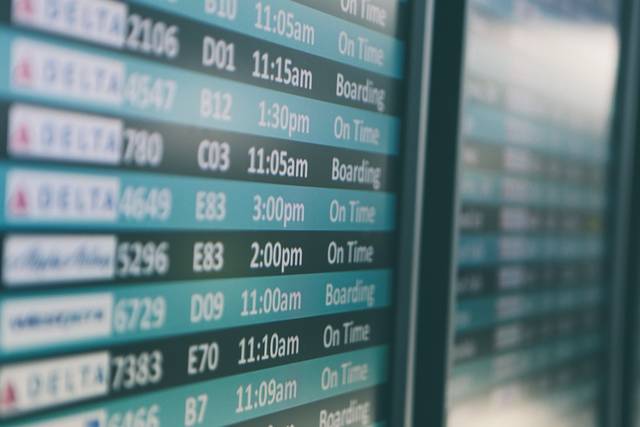U.S. may ban laptops on all flights from Europe

COURTESY PIXABAY
A senior official with a U.S. airline said that carriers had been in talks with government officials for weeks about the possibility of an expanded ban, mainly over the logistics of carrying it out. The particular problem is passengers connecting in Europe from flights originating in the Middle East and Africa.
WASHINGTON >> The Department of Homeland Security is considering banning laptops and other large electronic devices from carry-on bags on flights from Europe to the United States, a department spokesman said today.
The action would extend a limited ban that was put in place in March. At that time, the United States and Britain barred passengers traveling through airports in 10 Muslim-majority countries from carrying laptop computers, tablets and other devices larger than cellphones aboard direct inbound flights. The larger items were to be stowed with checked luggage.
The ban was put in place after intelligence showed that the Islamic State was developing a bomb that could be hidden in portable electronic devices.
David Lapan, a spokesman for the Department of Homeland Security, said the agency had not decided whether to extend the ban. “We’ll likely expand the restrictions,” he said.
John F. Kelly, the Homeland Security secretary, is to brief senators on security topics Thursday, according to a Senate aide.
Officials did not say when a new ban might be imposed.
Don't miss out on what's happening!
Stay in touch with breaking news, as it happens, conveniently in your email inbox. It's FREE!
A senior official with a U.S. airline said that carriers had been in talks with government officials for weeks about the possibility of an expanded ban, mainly over the logistics of carrying it out. The particular problem is passengers connecting in Europe from flights originating in the Middle East and Africa.
An intelligence official, who, like the airline official, was not authorized to speak publicly about the potential ban, said it was being considered because of concerns that radicalized citizens of European Union nations or people with dual citizenship could target U.S.-bound flights.
U.S. officials have tried in recent years to increase the vetting of those traveling into the country. Last year, the Obama administration revised a program that allowed citizens of about 38 countries, mostly in Europe, to visit the United States without a visa on trips of 90 days or less.
The changes made it harder for travelers to enter the United States from Europe if they had dual citizenship in Iran, Iraq, Sudan or Syria, or had visited one of those countries in the previous five years. The rules were later extended to those who had visited Libya, Somalia and Yemen.
Another government official, also speaking on the condition of anonymity, said the new ban was being considered because the U.S. government considered immigration policies in Europe to be lax. There is also a concern that the ban adopted in March might not stop a terrorist with a bomb-rigged laptop from simply flying to Europe to catch a U.S.-bound flight.
The U.S. government has had problems detecting explosives in laptops, intelligence officials said. In some tests, fake explosives hidden in laptops had gotten through security scanners almost without fail, they said.
Extremist groups have targeted transportation hubs in the past two years, including the bombing of an airliner in Egypt in October 2015, and, last year, the attempted downing of a plane in Somalia and armed attacks on airports in Brussels and Istanbul.
When the Trump administration announced the restrictions on flights from the Middle East in March, officials said they did not signal a credible, specific threat of an imminent attack. They repeated that today.
© 2017 The New York Times Company




